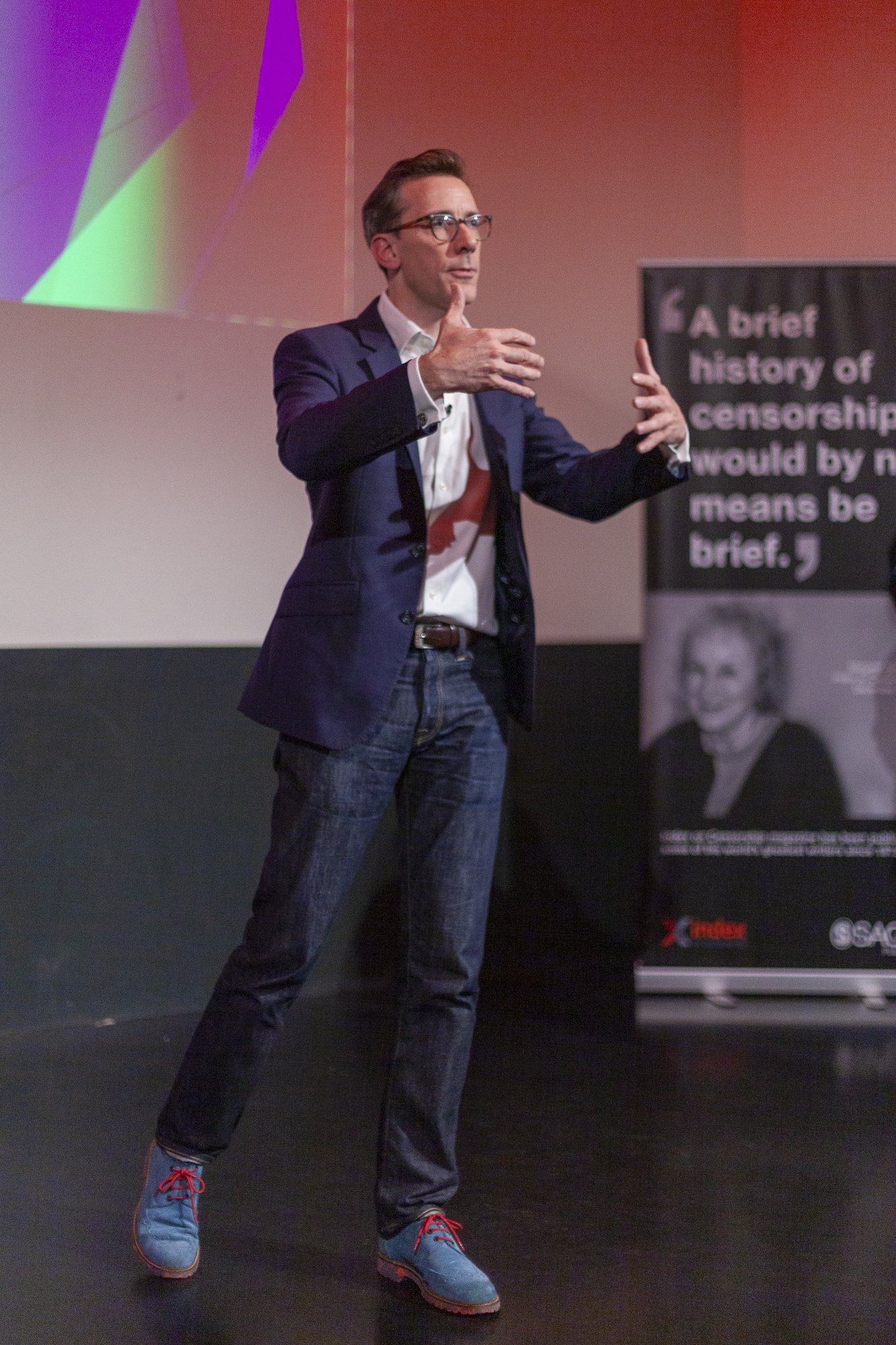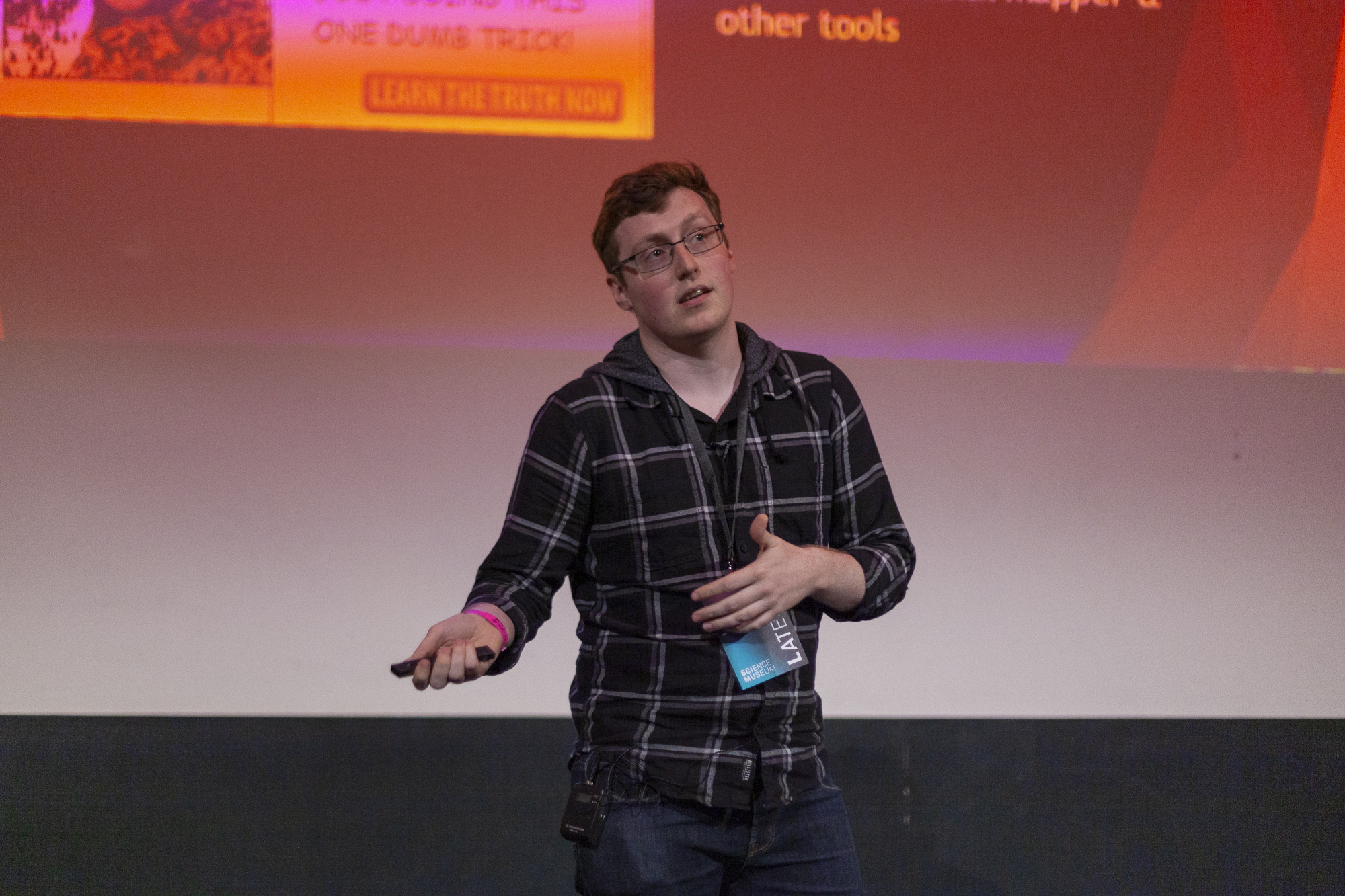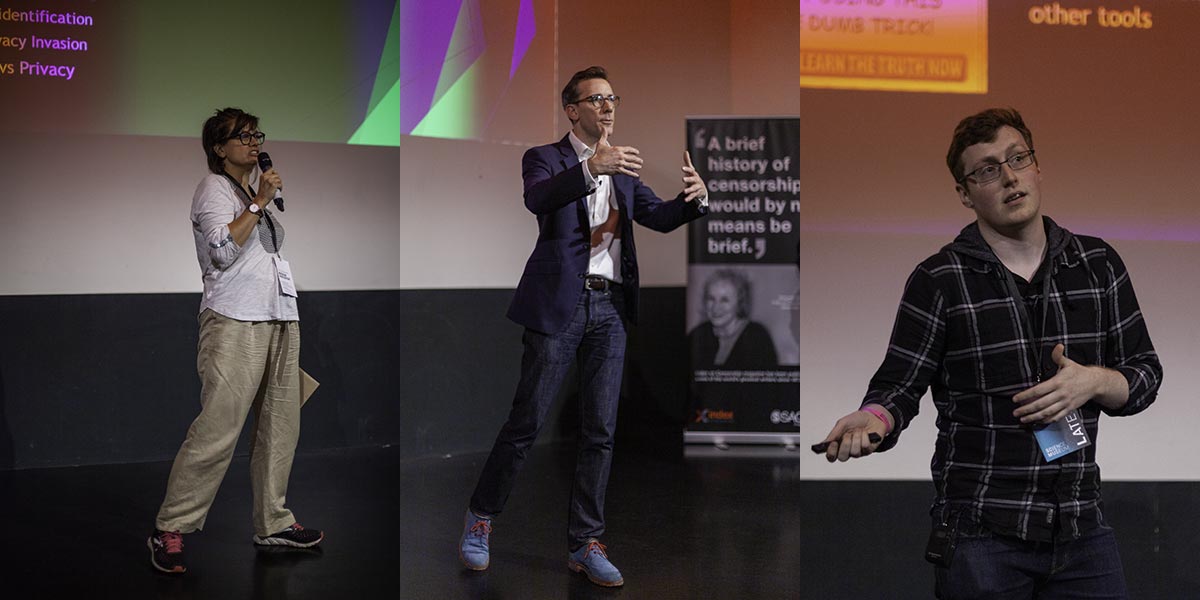[vc_row][vc_column][vc_column_text]

Tech journalist Geoff White (Photo: Sean Gallagher / Index on Censorship)
“Put your hand up if you’re concerned at the moment about facial recognition”, Geoff White, investigative technology journalist, told the audience at the launch of the latest issue of Index on Censorship magazine. “Keep your hands up if you own a smartphone”, was White’s next instruction to the majority of the audience. “Good news. You’re already using facial recognition!”
The autumn issue of the magazine, on the theme of borders, investigates how border forces around the world are increasingly clamping down on the free movement of ideas. The worrying and growing trend of travellers’ social media accounts being checked as they enter a country was a particular focus of the magazine. Contributors questioned whether people would begin to self-censor their online presence for fear of their views being held against them at airport security. This could pose particular dangers to LGBT travellers travelling through countries with repressive laws.
The launch was part of the Science Museum’s September’s late event, which takes place monthly. The theme of the night was Top Secret, and Index on Censorship shared the venue with talks about cracking codes and personal security. White was joined on stage by Jacob Wilkin, a penetration tester. Their talk was introduced by Rachael Jolley, editor of Index on Censorship magazine.
White highlighted the issues around the increasingly widespread use of facial recognition technology: the data that can be attached to the image of a face. Different stashes of data, bank and tax records for example, each have a unique number attached to them. He said: “But to really have power in this new world of data you need to get all the stashes together.” This requires one number that unites them all. “And guess what, we’ve had it along. It’s literally written on your face.” Facial recognition technology reduces an image of a face to a set of numbers and letters.
This comes into play at the world’s borders. International airports, including LAX and Gatwick Airport are employing facial recognition technology. The Transport Security Administration in the US have scanned 19,000,000 people to detect imposters. They detected 100. Is it worth collecting the data of so many to catch so few?
White said: “Think about the number of stashes of data that your face connects to. Your Facebook profile, your LinkedIn profile, your Twitter profile, your driver’s license, your passport, and increasingly every cctv camera you walk past.” Britain is second only to China for proliferation of CCTV cameras.

Network penetration specialist Jacob Wilkin (Photo: Sean Gallagher / Index on Censorship)
Wilkin demonstrated how easily computer programmes can find these social media accounts with minimal information. Wilkin describes himself as “a hacker for the good guys”, testing for flaws in the security of corporations and banks. He has created a facial recognition programme called Social Mapper.
Social Mapper correlates people’s social media profiles based on an image and a name that is fed into it. Days before the launch, Jodie Ginsburg, CEO of Index on Censorship, volunteered a photo of herself to Wilkin to run through his programme. Her Linkedin, Twitter and Facebook profiles promptly appeared on the wall behind Wilkin. “This took two minutes” he said. “If you run this over multiple days with multiple machines, you can collect all the Linkedin data for a whole organisation.”
“What are the border implications of this?” Wilkin asked. He has spoken at an event for US Department of Homeland Security, who are looking at “scraping social media profiles as people come into the country. They want to find links to drugs, smuggling, terrorism.”
Catching people who pose a threat to the safety of others is doubtless a good thing. But should it come at the price of the violation of the privacy of the general public? Social media provides platforms where people are free to air political views, and exhibit aspects of their lives, including sexual orientation. When crossing borders into countries where freedom of expression is limited and dissenters are punished, will knowing that this information is being instantaneously collected impact on how people use their right to freedom of expression online? [/vc_column_text][vc_basic_grid post_type=”post” max_items=”4″ element_width=”6″ grid_id=”vc_gid:1569514532933-51b65a69-4c09-0″][/vc_column][/vc_row]





